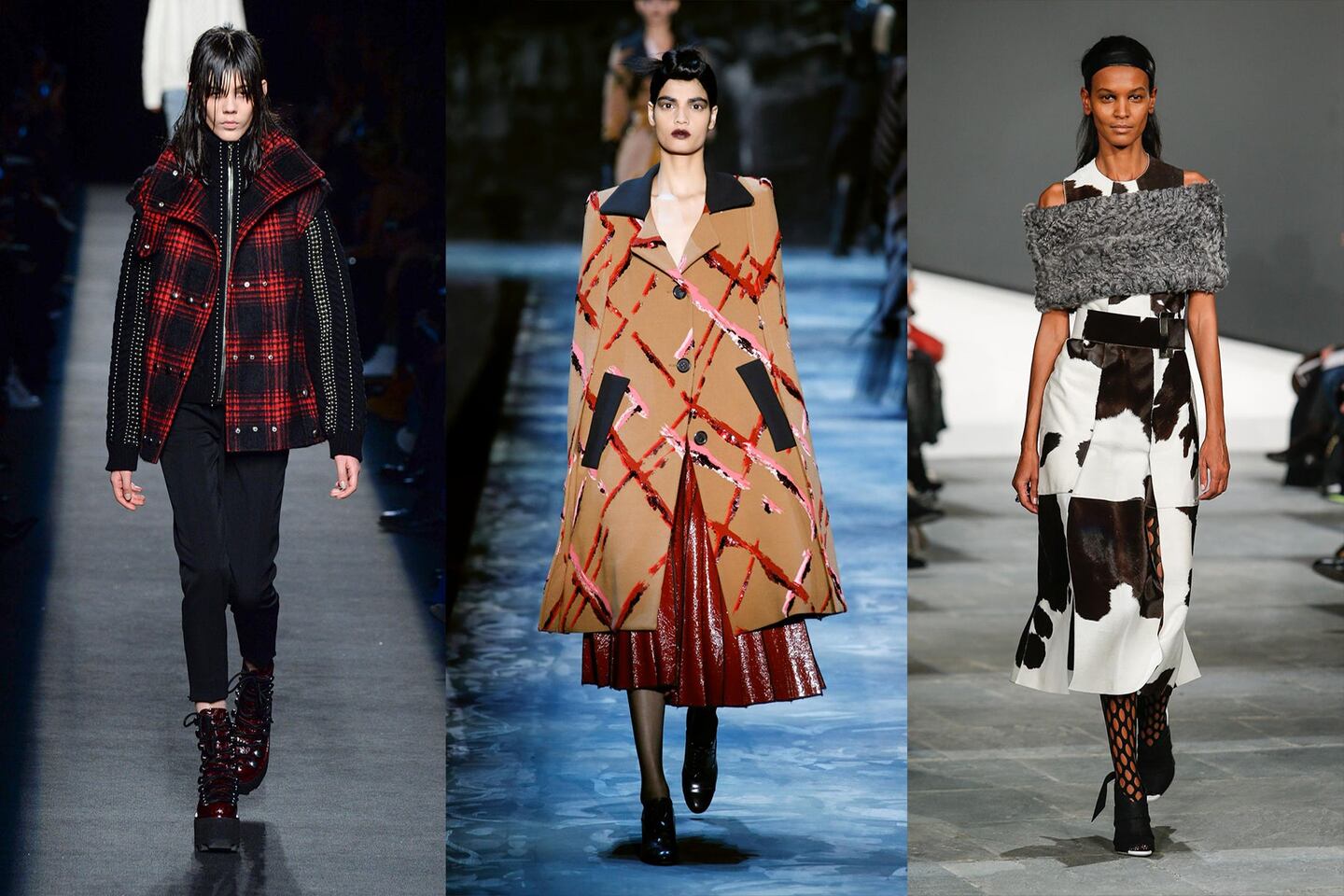
The Business of Fashion
Agenda-setting intelligence, analysis and advice for the global fashion community.

Agenda-setting intelligence, analysis and advice for the global fashion community.

NEW YORK, United States — The New York fashion week that closed yesterday was a gruelling feat of endurance and not only because of the extreme weather conditions. The week that opens the fashion month marathon is arguably the one with the silliest, craziest calendar. American editors who complain about the Milan schedule or logistical challenges of navigating Paris should advise the CFDA that New York fashion week needs a vigorous edit. There is too much clutter.
Of course, everybody today wants a show: young designers, old designers, first-time newcomers, labels in need of a facelift, timeless stars. A fashion show is seen as something akin to a grand baptism: the door to fashion heaven and eternal stardom. But is that really true?
A show, which in our day is actually more a theatrical performance or living mood-board than a mere stroll on a catwalk, a visual punch rather than a seance de travail for insiders, is, in fact, a double-edged sword. It can bring good ideas to life, or mercilessly expose the faults and perils of a weak idea, in front of the both the physical and digital of the eyes of the public. In New York — forgive the harshness — there was no shortage of weak ideas. That's not to say that New York lacks good product, but New York is so pragmatic, it sometimes makes you yawn. It is wonderfully commercial, but hardly surprising or innovative.
New York is so pragmatic, it sometimes makes you yawn.
The perfect show is New York's holy grail — and just as hard to find. There were some highlights, however. Marc Jacobs' Vreeland-infected galore was a blast, if a tad too coiffed. Proenza Schouler was another: the boys went experimental, maybe too much, but kept the bar high. Alexander Wang tried to grasp again that underground edge that first put him on the map: his hand felt forced to say the least, but then again restraint has never been Wang's forte. Narciso Rodriguez was in brightly minimal good form, while Peter Copping's first outing at Oscar de la Renta felt like an ode to classy continuity. Michael Kors was in good shape, too, but his shows usually come a cross as a florilegium of fashion's best ideas, served on a nice plate and made palatable for a public consisting not only of fashionistas. But this was really too little to bring any sense of frisson to the week.
ADVERTISEMENT
Of course, lamenting the lack of fresh ideas is cliché. Blandness is everywhere. In New York, however, the situation feels extreme and, at the end of almost ten days of fashion action, it is honestly impossible to hold lasting memories of what you saw. Shows keep slipping by. Just a few images stick in your mind, while the rest blur into an undefined mass. This is the core of the issue. A brilliant show would immediately make up for the snow, the noise, the traffic and the dirt.
Even when it comes to brilliant shows, there is too much blatant pillaging from the fashion vernaculars of other designers. Of course, appropriation in today’s world is hardly surprising. It's everywhere. The Internet has almost done away with the concept of copyright, enabling a mercilessly cut-and-paste reality. There are creators of the Dada lineage who have turned appropriation into a fully-formed art form. But not in fashion, unfortunately. Appropriation along these lines requires an inventive and curatorial mind. Copying, on the other hand, is a sign of laziness.
This week in New York, you could almost tick the boxes as the models strolled by: Céline, done; Vuitton, done; Dior, done. And so on. Not to mention another favorite hunting territory for American designers: Helmut Lang's industrial/minimalist aesthetic. This season, the number of replicas reached peak levels, with collections as diverse as Victoria Beckham and Edun going into full-blown Céline mode. Which is strange. Fashion obviously has no memory, but taking inspiration from things that just hit the shops is a tad perilous. Or is it not? As for Marc Jacobs, his devotion to Miuccia Prada grew from pillaging to full-blown homage.
America, so the saying goes, is the place where everything gets bigger. Another cliché admittedly, but, also, a heightened form of truth. It surely is for fashion; New York's ever-expanding fashion week lacks genuine design innovation, which does not mean avant-garde fashion, but finding a visual language that is rooted in the moment.
What we see, most of the time, are beautiful exercises in styling and little else. Even an experiment as pared down and refined as The Row does not add that much to the monastic/minimalist debate, a purist like Zoran having said it all already a few decades ago.
What's more, the amount of power stylists have over a designer's work is way too much. You can see their hands everywhere. Of course, stylists are critical. But their job should be fine-tuning a designer’s voice, not distorting it; a more invisible touch. With a lighter hand, Proenza Schouler might have been more effective, for instance.
Playing utopia, however, is pointless. Genuine innovation is rare and we should accept that. This said, having fewer shows in New York would help to sharpen things up and let the true innovators shine through, wherever they are.
From where aspirational customers are spending to Kering’s challenges and Richemont’s fashion revival, BoF’s editor-in-chief shares key takeaways from conversations with industry insiders in London, Milan and Paris.
BoF editor-at-large Tim Blanks and Imran Amed, BoF founder and editor-in-chief, look back at the key moments of fashion month, from Seán McGirr’s debut at Alexander McQueen to Chemena Kamali’s first collection for Chloé.
Anthony Vaccarello staged a surprise show to launch a collection of gorgeously languid men’s tailoring, writes Tim Blanks.
BoF’s editors pick the best shows of the Autumn/Winter 2024 season.